Talking is the best way to communicate, understand and exchange ideas in order to overcome obstacles between the parties and come up with realistic results and solutions that would improve the current situation, given that governmental efforts are not serious in the environmental issue, and that academic solutions resulting from studies, experiments and research are enough to provide the necessary solutions of the environmental changes if they were highlighted, and the fact that environmental activists can be a link to bring government and academic viewpoints closer, in addition to informing the public about the seriousness of the environmental situation, and pushing the government action towards clean energy and reducing the risk of climate change.
Therefore, for the first time since the start of its participation in 2016, Humat Dijlah Association organized within the activities of the sixth season of the Iraqi Social Forum, on the 29th of last November at Baghdad Academy for Human Sciences in Baghdad, Dijlah Talk Conference, which included many seminars and talking sessions about the most important problems and the obstacles that the environmental reality in Iraq sufferings from, in addition to workshops held within the work of the environment and water path on the next day of the conference.
Possibility of Implementing the Environmental Protection and Improvement Law
The conference sessions began by talking about a policy paper “Assessing the Opportunities of Iraqi Environmental Protection Legislation,” where Ali Al-Karkhi, President of Humat Dijlah, reviewed the Law on the Protection and Improvement of the Environment No. (97) For the year of 1987, No. (3) of the year 1997 and No. (27) of the year 2009, Al-Karkhi spoke about the details of this law and the guarantees it provides to protect the environment and the expected results if it is activated and how there is a difference and distinctions between the texts of these laws, “The Council of the Protection and Improvement of the Environment is responsible for the Law of Protection and Improvement of the Environment. Until 1986, the Council had the powers to draw up certain policies and propose them to the Council of Ministers. Now, the duties of the Council is limited to expressing an opinion only regarding the law,” said Al-Karkhi, whilst the possibility of implementing the Protection and Improvement of the Environment Law is not guaranteed as Al-Karkhi explained “The legislation of this law does not mean that it will be implemented!”
Speaking about the success story of Humat Dijlah in Thi Qar in activating the law of protection and improvement of the environment, Naseer Baqer, director of Humat Dijlah office in Thi Qar, spoke about the campaign to activate Articles (7), (14) and (18) of the Law on Protection and Improvement of the Environment, which succeeded through building a network of volunteers, attracting stakeholders and local youth activists, and targeting the local government side of the city of Nasiriyah. Baqer says “Despite the obstacles we faced, the interaction of governmental and local authorities and the results achieved were worthy. It is necessary to transfer this experience to all cities after seeing its results.”
One of the most important results of activating this law is the formation of councils imposed by Articles (7), (14) and (18) on the Minister of Environment, and this will ensure the protection of the marsh environment (the Central Marshes in particular) and its biological diversity.

Causes of Pollution of the Shatt Al-Arab Water
Regarding water pollution, the causes that led to the emergence of salinity and pollution in the waters of Shatt Al-Arab in Basra were discussed, where the Environmental Expert, Alaa Badran, pointed to the most important of these reasons; represented by the water shortage crisis and the climate changes that began two years ago, in addition to the presence of air pollutants, because of more than 700 flames north and west of Basra, all of them lead to the formation of black clouds, and thus the rains are accompanied by huge amounts of toxins that led to overcrowding the hospitals in Basra due to cases of suffocation, Badran also attributed the cause of water pollution in Basra to the inefficiency of the sewage network that flows into six rivers within the borders of Basra, in addition to the accumulation of water from the sewage networks of the rest of the cities, which all flow into the region and cause massive pollution as well as compositing the toxic red algae, which makes this water unusable “Basra does not get enough water and rains, as some reports indicate that in 2026 the city of Basra will be uninhabitable!” Badran added.
Discussing the water policies adopted by the upstream countries, Badran says “According to the global statistics on water justice, the equivalent of 1,000 cubic meters of water must be provided for each person. Therefore, any population increase in the upstream countries will led to an interruption of part of Iraq’s water share!”, He also reviewed a map showing the Turkish and Iranian dams and their impact on the water imports of the Tigris and Euphrates rivers, saying, “It is necessary to establish dams in Iraq for use in rainwater harvesting. Otherwise, Iraq, in its current state, is not ready to face drought conditions and water scarcity in the future.”
As for the role of environmental activists in this issue, Amir Qusay, Environmental Activist, praised the need to attract people’s attention to environmental affairs by intensifying environmental awareness activities and urging afforestation and increasing green space. He also pointed out the need to work in partnership with government agencies for the purpose of protecting the environment, rivers and work to increase Iraq’s water share.
Makhoul Dam, Its Effects and Advantages
Dams’ discussions are always divergent as this session included mixed opinions about Makhoul Dam. “Makhoul Dam is one of the highest priority dams in the country due to its importance in storing and distributing water, generating energy and its role in agricultural reclamation,” said Hatem El-Tayeb, Engineer and Member of the Management of Makhoul Dam Project, Where the dam features and effects on the small communities near the dam’s lake and the environment in the region were discussed, and Al-Tayeb added, “Makhoul Dam was not a result of the moment, but its implementation came after the occurrence of a water shortage crisis, when the need for its construction necessitated.”. The establishment of Makhoul Dam will lead to many material and agricultural losses, as it will flood 40 villages inhabited by about 100,000 people and approximately 50 km of fertile agricultural land. However, Al-Tayeb had another opinion, as he said, “Every country needs such dams, even if they are socially opposed, the country comes first, just like the case in Ilisu Dam, which Turkey built after providing rewarding compensation to the people.”
On the other hand, Dr. Khalil al-Jubouri, Head of the Archeology Department at Tikrit University, believes that there is no harm in constructing Makhoul dam, if alternatives are provided. He said “Makhoul Dam contains more than 200 archaeological sites, and the excavations conducted by the Antiquities Authority in the region are not enough, as they began in 2000 until 2003, it was followed by excavations carried out by the American University of Iraq-Sulaimani (AUIS), when they discovered the existence of 100 unexcavated archaeological sites in Tell Al-Fars, one of the areas that will be flooded by the reservoir of the dam. Therefore, it is unreasonable to submerge an ancient city dating back to more than 400 years BC in this way! “
Climate Change and Paris Agreement
On climate changes that have greatly affected the Arab World and Iraq in particular, due to the large desertification and the improper use of water, Mustafa Muhammad Al-Khafaji, Director of the National Center of Climate Change Department, explained that Paris Agreement and the effects of climate change on Iraq made it the fifth most fragile country in term of economy, he said, “The second clause of the agreement is based on reducing gas emissions, and if this clause is implemented, oil exports will be stopped, and here lies the problem of Iraq in its main resource, in spite of that Iraq does not burn oil, but rather extracts and sells it, the oil sector will be in danger because of the countries that will be subject to sanctions as a result of the application of this clause, and accordingly, if Iraq does not provide alternatives that can be revive the economy, its future will be threatened. “
In the same context, Dr. Ibrahim Al-Sudani, Environmental Expert and Specialist in Environmental Sciences and Renewable Energy, added while talking about the green industry and sustainable solutions, “if Iraq invests international support, it will bring an important economic resource in renewable energy, oil investment and the industrial sector.” Al-Sudani also pointed out that the climatic changes in Iraq are very extreme, and they began to be observed since 2015, when the amount of water and rain decreased to more than two-thirds of the amount, also the encroachment on groundwater is the best evidence of this deterioration, and it is clear that the impact of climate change has affected even biodiversity in Iraq, as 5% of Iraq’s birds are threatened with extinction”. Al-Sudani added, “The climatic and environmental challenges are terrifying and not natural, and what makes it worse is the inefficiency of Iraqi water management, which puts Iraq’s water future under the mercy of the water management of Turkey, Syria and Iran.”
As for the relationship between climate change and agricultural foundations, Dr. Ahmed Abdul-Hadi pointed out that agriculture is linked to many things that would reduce global warming by increasing the area of vegetation cover, the trend towards renewable energies and optimal use of water, and he also praised the necessity of giving the climate issue the utmost importance by the ruling authorities.
In response to the question of “whether Iraq is on the right path in the climate change file?” Al-Khafaji answered, “We are on the right path, but this file must be neutral, not affiliated with anyone, and the decision must be central in terms of management and implementation.”. He added “ A good negotiator must be built to negotiate the climate change issue, and it is also necessary to improve the transparency framework and work with the principle of clarity in declaring oil exports and the resulting effects, and work to reduce them through the use of environmentally friendly methods in the oil extraction process.” Ibrahim said at this point, “We are on the road, but we are moving slowly.”

Wildlife Photography between Knowledge and Adventure
Talking about wildlife photography and what are the difficulties and obstacles facing Iraqi wildlife photographers, Abu El-Hassan Al-Musafiri, Environmental Activist and Head of Jiljamos Organization, mentioned that wildlife photography is one of the most important and difficult types of photography, as it does not only require special equipment, such as special lenses and fast cameras to document more than one shot at the same time, but also needs a lot of scientific and practical experiences and specialized skills in wild photography, and the photographer needs to learn a lot of information about wild creatures, needs to have energy, effort and passion to reach the best result, unlike other photographic methods that amateur photographers can do.
Laith Al-Obaidi, Member of Humat Dijlah, spoke about the purpose of photographing wildlife, which is to transfer a picture of a specific discovery or to document a future study, he added, “There is a relationship between environmental protection laws and wildlife photography, as the snapshot (photo) is what plays a role in monitoring and documenting creatures and thus conveying an idea of the importance of protecting them, and the best example of the importance of wildlife photographing is the listing of the marshes into the World Heritage List, as the reason for that relied on the biological diversity in this region and it is no secret that photography played an important role in convey a clear picture of this diversity.”
Speaking about the most important obstacles facing wildlife photographers, Al-Obaidi added, “The most important obstacle is protecting the camera, and dealing with animals that may pose a danger, because their reactions are unknown.” He also indicated the weak attention and the lack of support of the government and media to encourage the wildlife photographers to continue, then at the end of the session, pictures of rare animals documented by Laith Al-Obaidi were shown, indicating the difficulty he faced in photographing these animals.
Unsustainable Hunting of Birds, the Central Marshes as a Model
About the protection of unique, rare and endangered species in the Central Marshes National Park, and ensuring that these natural resources won’t lost and it’ll be passed for future generations, a broad study prepared by Laith Al-Obaidi on “The Overhunting of Birds in the Central Marshes”, was presented and its most important outputs were improving education and raising awareness in the marshes communities, hunters and hunting associations by raising the awareness of decision-makers in managing the national park and establishing protection initiatives to prevent hunting birds using poisons, nets and illegal methods, also raising the awareness of its danger, in addition to banning selling them, and working to better implement the existing laws, and improving the social opportunities of these societies.

As for the second day, two sessions were held within the environment and water path, the first session “Environmental Pollution of Soil with Heavy Chemical Elements”, where Dr. Alaa Hassan, academic and soil chemist, talked about the impact of soil pollution on human health and discussed how to treat it using sustainable and healthy alternatives. The second session, held by (Sports Against Violence) organization, talked about the relationship between sport and promoting environmental awareness, which included an explanation of what environmental awareness is, and how the environment and climatic changes affect the performance of athletes and how to use sports in spreading environmental culture.
The conference witnessed the participation of more than 225 people over the two days, including environmental activists from Humat Dijlah and Humat Al-Forat, academics, specialists and those interested in environmental affairs, and about 44 representatives of government agencies from several ministries, in addition to a number of journalists and TV channels.
Dijlah Talk Conference was organized by Humat Dijlah Association, and was among the activities of the sixth season of the Iraqi Social Forum in cooperation with Baghdad Academy for Human Sciences.
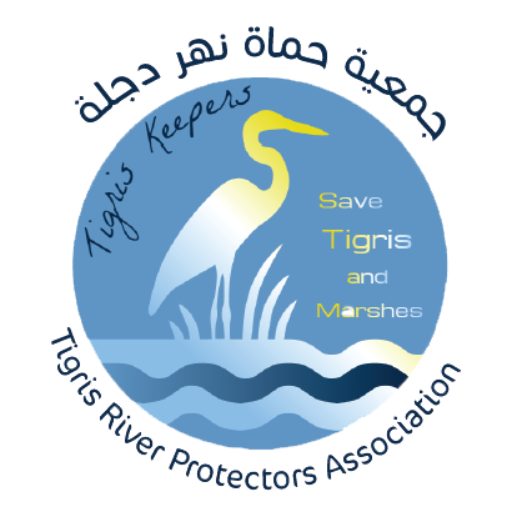
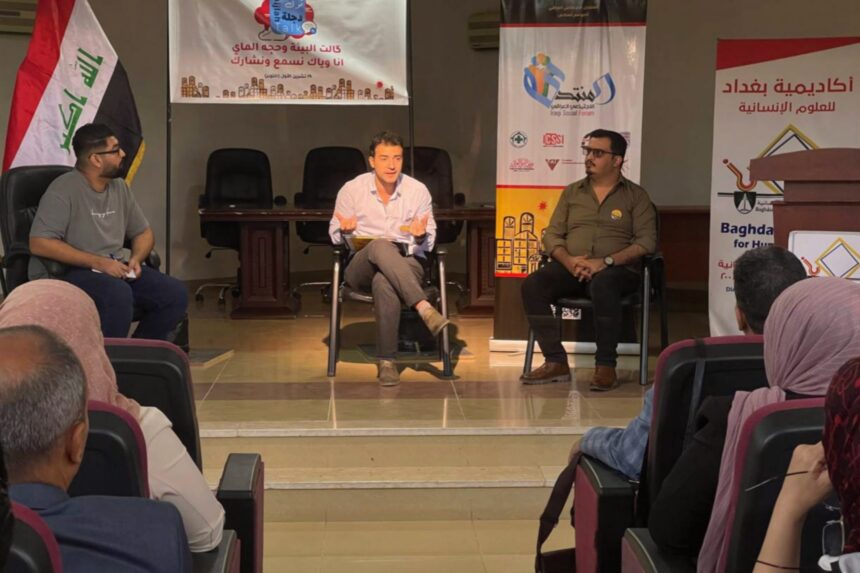
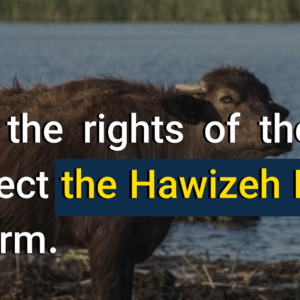
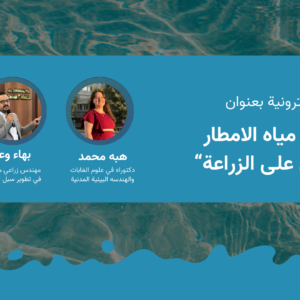
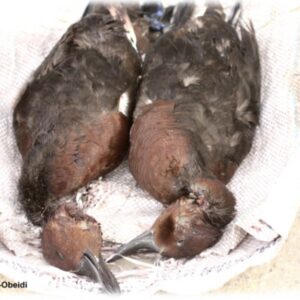
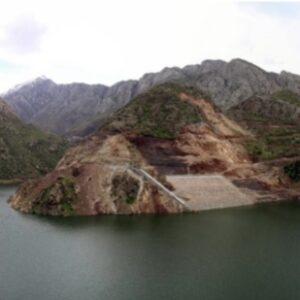
Leave a Reply